Доц. д-р инж. Пламен Василев
Ръководител на катедра
каб. 194, сгр. В, ет. 3
plamen.vasilev@uctm.edu
Телефон: 0895614704
Scopus ID: 57191542056
WoS Researcher ID: M-1002-2016
ORCID: 0000-0001-6493-402X
The “Production Automation” Department is accredited to provide education in degree programs through structured curricula that prepare students for the challenges of modern industry. The education is distinguished by an emphasis on:
– Applying modern methods and specialized software for data processing and analysis.
– Programming and development of innovative software solutions in information technologies and automation.
– Designing computer networks and information management systems.
– Optimization and maintenance of automated production systems.
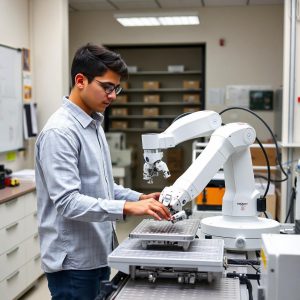
The aim of the program is to train engineers in “Automation and Information Technologies” who possess the knowledge, skills, and competence enabling them to carry out managerial, design, implementation, operational, technological, research, and teaching activities in industry, oriented mainly toward the chemical, metallurgical, biotechnological industries, ecology, and environmental protection. The education in the “Automation and Information Technologies” major aims for bachelor’s graduates to obtain very strong training in the field of computer engineering and information technologies and their application both in automation and in all spheres of life. Graduates of this major acquire sufficient knowledge, skills, and competence to actively participate in the digitization processes of industry and society in Bulgaria and abroad, and to meet the challenges of the Fourth Industrial Revolution.
The aim of the program is to train engineers who possess the knowledge, skills, and competence to carry out the digital transformation of industry and public life, by building a foundation for broader and deeper mastery of the methods, techniques, and tools of engineering informatics, related to solving the following three main tasks that must be addressed under the conditions of the Fourth Industrial Revolution: Vertical integration of flexible and reconfigurable information-management and production systems. Horizontal integration of information through the development of value networks; End-to-end digital engineering across the entire value chain of added value;

Master’s students receive in-depth theoretical training in the most up-to-date problems of control theory, technical and software tools, and the application of information technologies in the control of technological processes. They deepen their knowledge in applied mathematics and applied statistics and learn new programming languages for them: C++, Java, and Python. Specialized training includes the main sections of modern control such as optimal, adaptive, and robust control, control based on mathematical models, and intelligent control. Special attention is given to signal processing and pattern recognition. Modern information technologies are examined in a specific way in advanced disciplines such as Internet technologies for control, information modeling, and data management. Systems analysis is a key element in master’s training and includes mathematical modeling of processes and systems and the theory of large-scale systems, operations research, and decision-making. The latest technical and software solutions in control systems are presented in disciplines such as information and control systems, sensors, and project management.
The main objective of the master’s program in Information Technologies is to develop knowledge, skills, and competencies in the field of research, design, development, implementation, re-engineering, and maintenance of computer-based information systems, software applications, and computer hardware. The program aims to create a foundation for broader and deeper mastery of the methods, techniques, and tools of information technologies, providing better opportunities for the future realization of graduates in the field of information and communication technologies.
The curriculum and programs provide in-depth fundamental training combined with specialization in the field of quality management. They include basic training in informatics, statistics, and quality management. An approach based on the principles of total quality management has been adopted. After that, a number of technical aspects of quality management are taught at all stages of the product life cycle: design, production, sales, and use. The course in Statistical Quality Control is dedicated to methods for detecting and eliminating defects. Methods for re-engineering and improving quality indicators are covered in a course in Design of Experiments. The Reliability course addresses ensuring product reliability as well as methods for technical maintenance of production equipment. The Optimization course provides training in optimization and optimal decision-making. Issues of quality assurance at the product and process design stage are covered in the Quality by Design course. The International Quality Standards course examines the development and operation of modern quality management systems. The practical orientation is also supported through three course projects.

The research is related to modern trends in implementing the digital transformation of industry and public life and includes the following актуални and contemporary thematic areas:
− Creation and study of modern methods for synthesis of automatic control systems;
− Synthesis of nonlinear controllers;
− Development and research in the field of modern control theory;
− Adaptive systems – synthesis of adaptation algorithms;
− Synthesis and research of robust automatic control systems;
− Development and research of intelligent methods in automatic control theory;
− Optimal control of discrete systems;
− Parametric models and methods for parameter estimation.
The research activity is related to modern trends in implementing the digital transformation of industry and public life and includes the following актуални and contemporary thematic areas:
− Development and analysis of fuzzy-logic-based methods for modeling and control of objects and systems;
− Genetic algorithms and genetic programming;
− Development and application of neural networks and models in identification and control tasks;
− Multi-agent systems;
− Intelligent production systems – holonic, biological, fractal;
− Development and analysis of formal methods for specification and verification in modeling and control tasks for production objects and systems – Petri nets, Generalized nets, finite, timed, and hybrid automata;
− Intelligent approaches in diagnostics tasks;
− Development and application of intelligent methods in decision-making and optimization tasks;
− Development and application of pattern recognition and machine learning methods;
The research is related to modern trends in implementing the digital transformation of industry and public life and includes the following актуални and contemporary thematic areas:
– Modern methods, methodologies, and systems for statistical evaluation and modeling;
– Modern methods for design of experiments;
– Methods, methodologies, and tools for quality management;
– Modern methods and systems for optimization;
– Intelligent methods and systems for optimization;
– Modern methods, methodologies, and systems for designing control systems – object-oriented, component-based, agent-oriented, or aspect-oriented;
– Optimal control of discrete systems;
– Methods and approaches for integrating computer-aided design systems with other information and control systems;
– Parametric models and methods for parameter estimation.
The research activity is related to modern trends in implementing the digital transformation of industry and public life and includes the following актуални and contemporary thematic areas:
– Distributed systems for information processing and management;
– Modern methods, methodologies, and tools for information modeling;
– Reference architectures and integrated information systems;
– Modern database systems – distributed, OLAP, OLTP, Data Warehouses;
– Standardization of data representation and exchange in various areas of the economy and public life;
– Modern methods and tools for web-based data exchange and communications;
– E-business;
– Intelligent information systems;
– Semantic web;
– Ontologies and ontological models and systems;
– Modern methods and methodologies for knowledge representation and design of Knowledge-Base Systems;
– Interactive environments and systems, human–machine interfaces;
– Information modeling and life-cycle management of products;
– Modern approaches in software engineering;
– Model-driven development;
– Cyber-physical systems;
– Operational management of production systems;
– Industrial Internet of Things.
The research is related to modern trends in implementing the digital transformation of industry and public life and includes the following актуални and contemporary thematic areas:
− Creation and study of modern methods for synthesis of automatic control systems;
− Distributed systems for automation and production management;
− Intelligent production management systems – holonic, biological, fractal;
− Multi-agent control of production systems;
− Modern methods and approaches to automation – component-based automation, object-oriented, agent-based;
− Supervisory control;
− Production operations management systems;
− Control of hybrid production systems;− Intelligent methods and tools for diagnostics in production systems;
− Modern control systems – optimal, robust, adaptive, predictive;
− Optimal control of discrete-event systems;
− Formal methods and approaches for specification and verification of control systems;
− Reconfigurable control of production systems
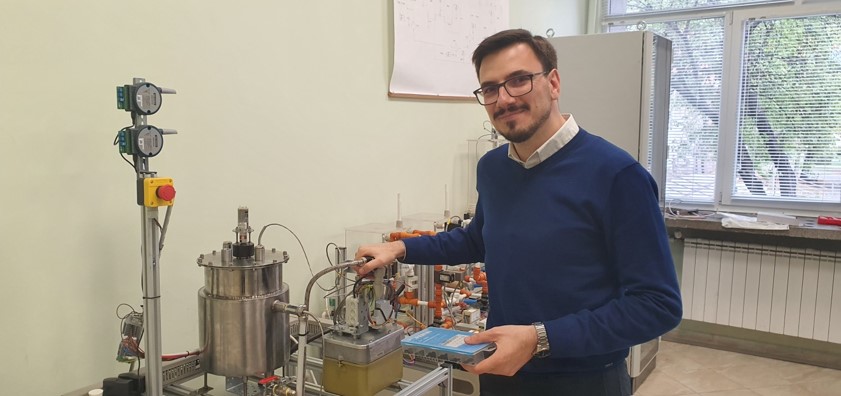
Members of the “Production Automation” Department traditionally participate in research teams carrying out a number of projects with national and international funding. A large part of the scientific output is funded through such projects. Their implementation supports the creation of competencies, the building of a scientific network with colleagues from other research organizations, and helps modernize the department’s material base. Currently, the active projects in the “Production Automation” Department are:
Project with the Research Fund – duration 3 years – launched in December 2024 – KP-06-PN87/51 on the topic: Integrated intelligent systems and approaches for improving the quality of water and soils – BG-175467353-2024-11-0287
Contract with UCTM No. 23-DS-36/15.12.2023 on the topic: Intelligent methods for digitalization of technological processes and systems, under project BG-RRP-2.004-0002-C01, BiOrgaMCT (Bioactive organic and inorganic advanced materials and clean technologies), under procedure: BG-RRP- 2.004 – Establishing a network of research universities in Bulgaria under the National Recovery and Resilience Plan
Contract with UCTM No. 24-DS-36/15.12.2023 on the topic: Intelligent learning factory for Industry 4.0 under project BG-RRP-2.004-0002-C01, BiOrgaMCT (Bioactive organic and inorganic advanced materials and clean technologies), under procedure: BG-RRP- 2.004 – Establishing a network of research universities in Bulgaria under the National Recovery and Resilience Plan
Project with NKIZ – Bozhurishte – Non-profit association “Regional Center for Digital Solutions and Innovations NKIZ (National Company Industrial Zones)” Contract BG16RFPR002-1.002-0009, Procedure BG16RFPR002-1.002 – Funding of European Digital Innovation Hubs selected by the European Commission and awarded the “Seal of Excellence” under the program “Research, Innovation and Digitalization for Smart Transformation”
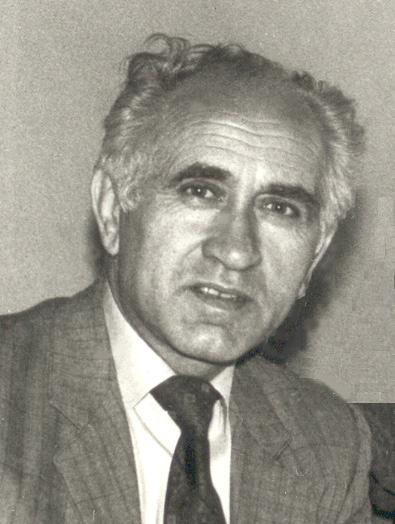
Ivan Stefanov Bozhov was born in the village of Skrebatno, Gotse Delchev municipality, on 19.12.1929. He graduated with higher engineering education in Chemical Technologies from the Moscow Institute of Chemical Technology “D. I. Mendeleev” in 1953. In the same year, he started work as an assistant at the Chemical-Technological Institute (CTI), Sofia (now UCTM) in the “General Chemical Technology” department, then in the “Processes and Apparatus” department, later renamed “Processes and Apparatus with Control and Automation”. Ivan Bozhov was the first head of the newly established (1970) “Production Automation” Department, which he led until his death in 1994. The department began teaching automation with 6 lecturers, and by 1989 already had 53 members, including 7 professors.
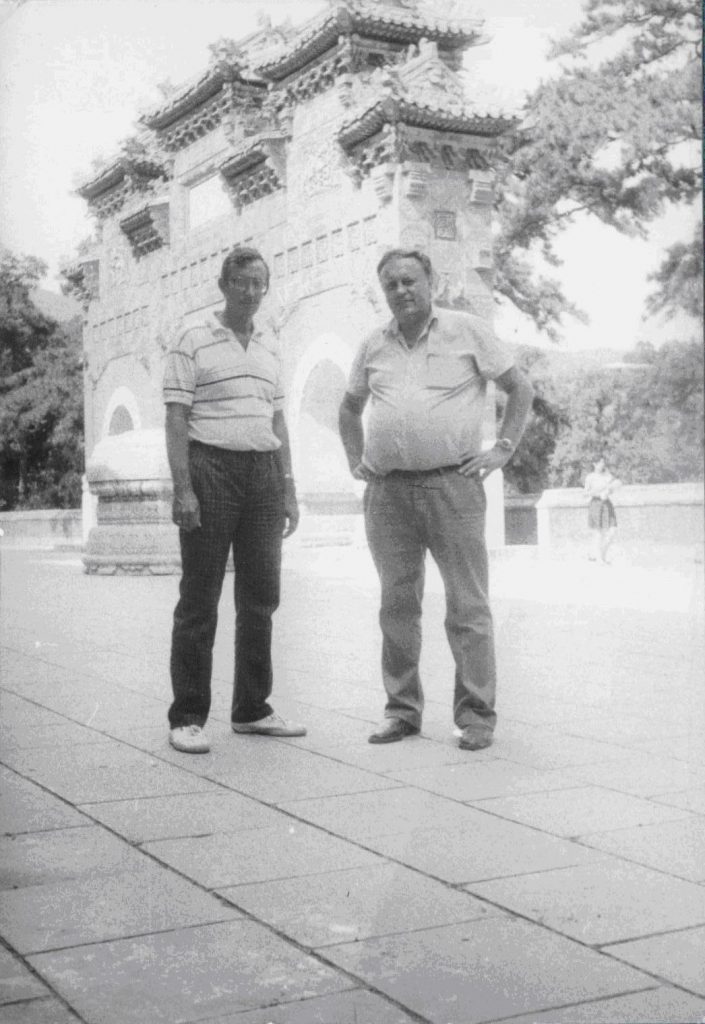
The position of head of the “Production Automation” Department was briefly inherited by Prof. DSc Eng. Kamen Velev (on the left), from 1991 to 1993, after which his career path took him in other directions. Prof. Velev served as Rector of UCTM for two and a half terms, Chairman of the Council of Rectors (1998-2003), Chairman of the Research Fund (2004-2006), and Deputy Minister of Education (2003-2005).
In 1993, Prof. DSc Eng. Ivan Vuchkov (on the right) was elected head of the “Production Automation” Department. He led the department for the next 11 years. This was the period of establishing international collaborations with EU universities under the TEMPUS program. The department developed joint work with a number of Western universities, including: the University of Wales in Swansea, the University of York in Coventry, the Universities of Strathclyde and Glasgow Caledonian, the University of Reading, the Technical University of Denmark in Copenhagen, the Polytechnic University of Turin, and many others. In the period 1991-2004, representatives of the department participated in more than 10 projects under the TEMPUS program.
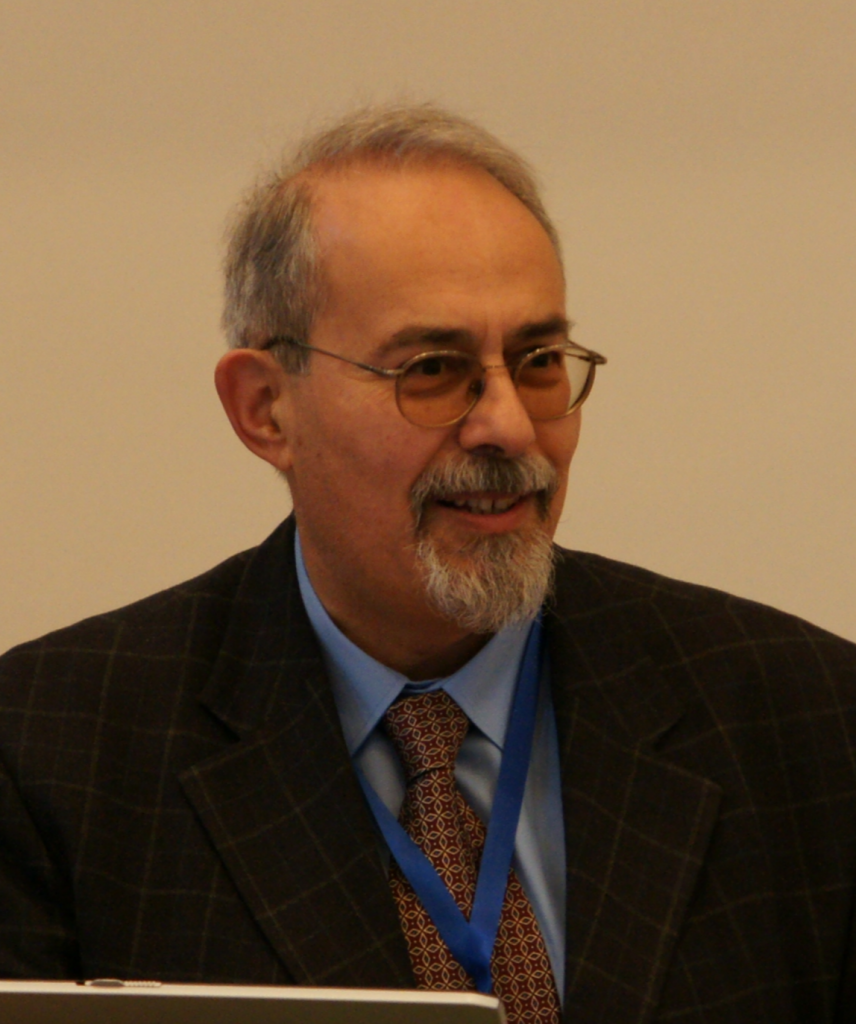
In 2004, Assoc. Prof. Dr. Eng. Ventsislav Tsochev was elected head of the “Production Automation” Department. Within the established directions, the senior academics created and strengthened academic schools, while a rejuvenation of the staff began and a number of young assistants and PhD students were attracted to the department. The department’s 40th anniversary was celebrated in a grand manner, with the festivities including a Jubilee conference with international participation, a round table bringing together education and business, as well as a gala dinner attended by more than 250 former and then-current lecturers and alumni of the department.
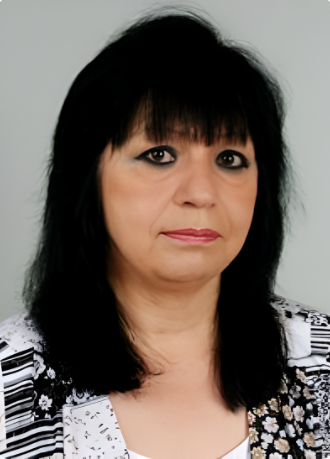
In 2016, Prof. Dr. Eng. Idilia Bachkova was elected head of the department. With her inexhaustible energy and spirit, she managed to modernize the department through funding obtained by leading and participating in several research projects with the Research Fund and the national ICTinScience program. Several new laboratories were created in cyber-physical systems, artificial intelligence, and industrial automation. Alongside this, numerous initiatives supporting the admissions campaign were launched. As a head, Prof. Bachkova put significant effort into establishing the new bachelor’s program “Engineering Informatics” in response to modern trends in labor market demand.
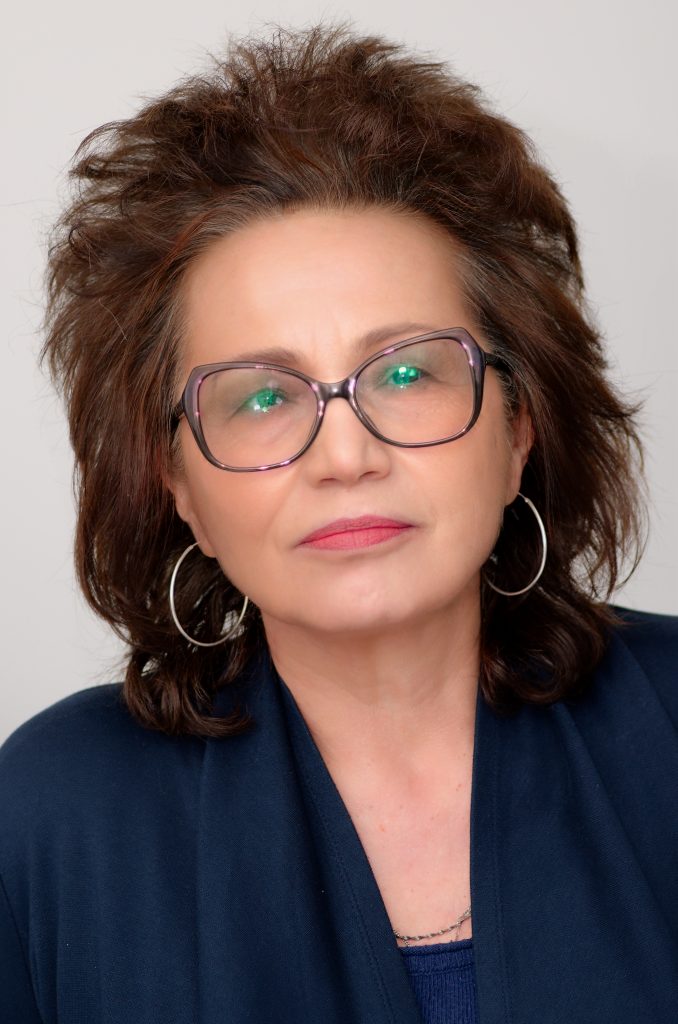
The year 2020 was marked by COVID-19, lockdown, and distance learning, which the newly elected head of the department, Assoc. Prof. Dr. Eng. Daniela Gocheva, had to manage. Despite the unfavorable conditions, during her term the following goals were achieved:
A multidisciplinary bachelor’s program “Intelligent Systems and Artificial Intelligence” was developed under project BG05M2OP001-2.016-0008-С02 “INNovations, Science and Education for high quality and compliance with the labor market in the TEchnical University-Sofia and PaRtneRs (INNOTECH PRO)”
The department, as a training unit, prepared and defended Self-Assessment Reports before the NEAA expert group in the procedure for obtaining accreditation for education in field 5.2 “Electrical Engineering, Electronics and Automation”. Subsequently, the department participated in UCTM’s institutional accreditation and in the accreditation of the doctoral programs in field 5.2.
Members of the department developed the project proposal for establishing a European Digital Innovation Hub named “Regional Center for Digital Solutions and Innovations NKIZ” (RCDSI NKIZ) on the territory of Industrial Park Sofia – Bozhurishte, which subsequently received the Seal of Excellence from the European Commission.
The modernization of the department’s material base continued, mainly with the support of project BG-RRP-2.004-0002-C01, BiOrgaMCT and the contracts with the UCTM Research and Development Sector.
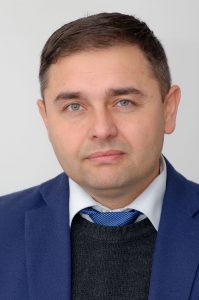
каб. 194, сгр. В, ет. 3
plamen.vasilev@uctm.edu
Телефон: 0895614704
Scopus ID: 57191542056
WoS Researcher ID: M-1002-2016
ORCID: 0000-0001-6493-402X
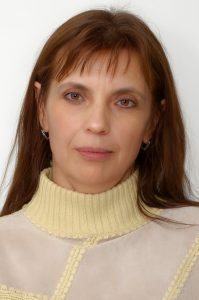
каб. 193, сгр. В, ет. 3
eligeorg@uctm.edu
Телефон: 0895537899
Scopus ID: 6603857335
WoS Researcher ID: AHD-0464-2022
ORCID: 0000-0002-3711-754X
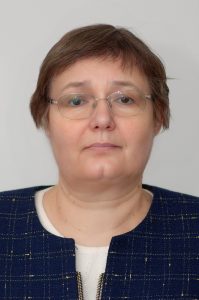
каб. 136, сгр. В, партер коридор
grancharova@uctm.edu
Телефон: 0889625010
Scopus ID: 6603203257
ORCID: 0000-0001-7527-8865

каб. 187, сгр. В, ет. 3
dani@uctm.edu
Телефон: 0888380283
Scopus ID: 6507961006
WoS Researcher ID: HXE-2637-2023
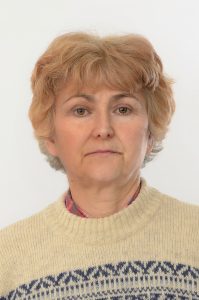
каб. 122Б, сгр. В, партер коридор
sv_lekova@uctm.edu
Телефон: 0877462663
Scopus ID: 55542530600
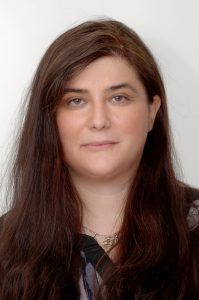
каб. 193, сгр. В, ет. 3
sura@uctm.edu
Телефон: 0889484896
Scopus ID: 57189047401
WoS Researcher ID: M-2308-2016
ORCID: 0000-0002-6968-7125
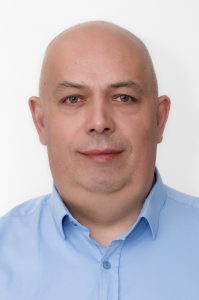
каб. 196а, сгр. В, ет. 3
metodiev@uctm.edu
Телефон: 0897894263
Scopus ID: 55568825500
ORCID: 0000-0002-5773-0894
WoS Researcher ID: ABM-5550-2022
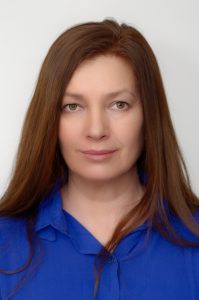
каб. 196а, сгр. В, ет. 3
nilieva@uctm.edu
Телефон: 0889678033
Scopus ID: 55214044000
WoS Researcher ID: AFS-1514-2022
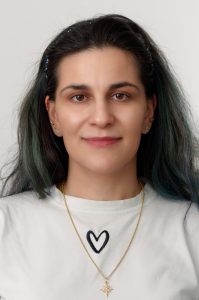
каб. 198, сгр. В, ет. 3
t.ivanova@uctm.edu
Телефон: 0896795798
Scopus ID: 57214485833
ORCID: 0009-0004-6275-1069

каб. 200, сгр. В, ет. 3
kalin.stoyanov@uctm.edu
Телефон: 0885253608
Scopus ID: 57216294085
ORCID: 0000-0001-5031-951X
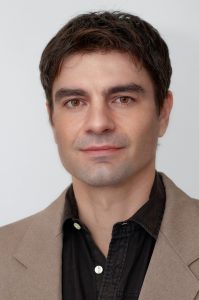
каб. 179, сгр. В, ет. 2
rakanov@uctm.edu
Телефон: 0895627992
Scopus ID: 57221762959

каб. 148, сгр. В, партер коридор
p.jordanov@uctm.edu
Телефон: 0888626368
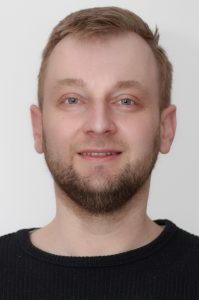
каб. 148, сгр. В, партер коридор
yordanbelev@uctm.edu
Телефон: 0877683737
Scopus ID: 57208859853
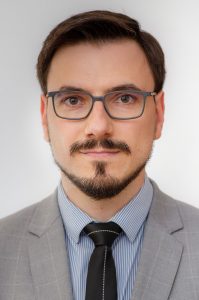
каб. 148, сгр. В, партер коридор
perchemliev.n@gmail.com
Телефон: 083456028
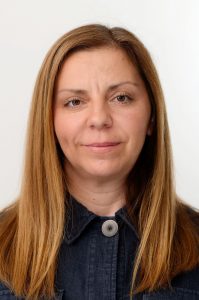
каб. 193, сгр. В, ет. 3
a.rrobinzonova@uctm.edu
Телефон: 0876713031